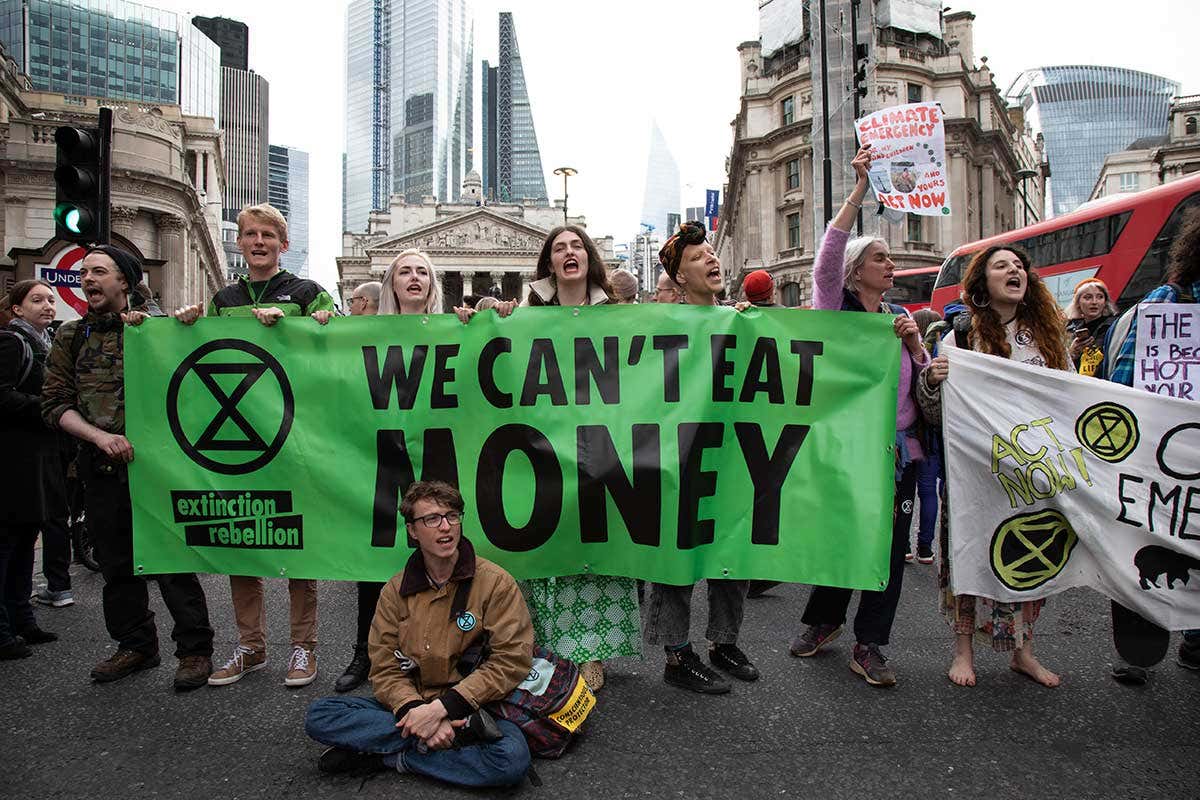Ahead of their second international uprising, Extinction Rebellion, also known as XR, have been in the forefront of the media this week, which in turn has brought back the debate about its methods, aims and organisation.
Peaceful, non-violent protest is at the heart of everything that the organisation stands for, with many members willing to put themselves up for arrest as a main method of garnering attention to the cause – arguably fairly successfully looking at the events of spring 2019 that saw over a thousand protestors arrested for their part in the shutdown of London and other towns and cities across the UK.
The uprising was successful by way of getting environmental issues into the headlines (previously a rare occurrence with populist news organisations taking headlines from populist newspapers such as the Sun) however one thing that was called into question in the media was the demographic of protestors: claims that these protestors were predominantly white and middle-class.
As a global organisation with XR bases in almost every country in the world, the organisation has proven itself to be one of the most diverse movements in decades. Secondly, this also clashes with the other widely held assumption that XR rebels are all “hemp smelling crusties” to quote the eloquence of Boris Johnson, which leads me to believe that critics of the cause will cling on to anything they see as negative surrounding the organisation. As a non-partisan group, members of XR are diverse in terms of class, profession and age as well as ethnicity – even Boris Johnson’s father, Stanley Johnson has shown support for the cause.
However, it goes without saying that to have the choice to make sacrifices such as putting yourself up for arrest is a mark of privilege, which Extinction Rebellion recognises and by no means is arrest an expectation. Those who put themselves forward as an arrestee are urged to go through extensive training with XR in preparation, with “legal observers” present at protests taking notes for possible legal proceedings and also to call family members of those arrested. Whether you’re with them or not, XR must be given credit for their organisation and care of its protestors.
Although Extinction Rebellion has links with law firms to provide solicitors for those arrested, rebels brought to trial may not be able to take it as far as they would like through the system if they don’t have the means to pay for their own lawyer or may not have the time to commit themselves to a full-blown court case.
A close family member of mine, taking full advantage of his privilege as a middle class white man, was arrested whilst blocking the road in Oxford Circus in April. Whilst many would question his sacrifice of a clean criminal record, he sees it, along with many others as his duty to take advantage of his societal privilege. Being in the position to be able to afford lawyers and having just begun his sabbatical – he’s in the perfect position to plead ‘not guilty’ and really string out a court case and get it higher up the system.
The argument that he is using is based on the precedent of the Law of Necessity, for example smashing a car window in order to save an overheating dog is not classed as a criminal offence due to the greater good, and as such there shouldn’t be a punishment for peacefully breaking the law for the sake of saving humanity from mass extinction. We’re yet to see how court will respond to this since the government, completely in the thrall of fossil fuels, is urging for a rigorous approach against all rebels, but fingers crossed I won’t have to be applying for jail visitation anytime soon.
Whilst I think its healthy to recognise privilege and its place in aspects of protest, I do think that it’s a moot point to scrutinise those taking advantage of their privilege to help the cause. Through the damage done since the industrial revolution, surely as a nation we must be in the front line in tackling the emergency. From my personal experience with Extinction Rebellion, I’ve found it to be one of the most inclusive and aware non-partisan organisations and for the first time, I really do feel just a little bit of hope.
Image Credit: New Scientist

